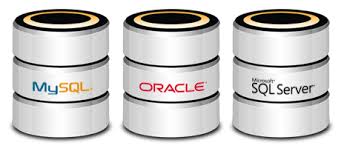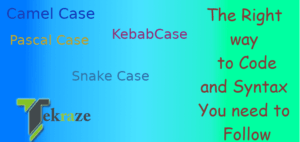Hey everyone welcome back to developer series. Today will be writing about what i left in previous post – The Databases. You must have read my previous post if not go to link below and read complete post.
[su_note note_color=”#fdfd89″]| Also Read | BackEnd Technologies you need to Know[/su_note]
So let start with Databases :
So what are Databases >>>
![]()
Databases are the Data Store or simply say they store all the data related to a system. The Data can be anything like user data like list of users having account, user uploaded records , system records, or transaction records in case of banking and can be many more … A database store the records in tables for proper management. These tables are linked to each other by keys that are just values like in case of a student . His/her roll no. can be the primary key for two tables like student profile and other student exam marks.
Popular Databases are MySQL, MSSql , Cassandra, Postgre Sql and Mongo DB. There are also many more too. The choice is just of user preference and system requirement.
[su_note note_color=”#fdfd89″]| Also Read | Developer Terminology you need to Know[/su_note]
Why Do we need Databases >>>
Some of you who are not from coding background will be thinking why do we need databases. The answer is we use computer such that we have two storage options one hard disk that is non-volatile (static undestroyable) and Ram that is volatile storage. For processing and working on current data the processing unit moves data into ram that is fast but volatile. So we need to push out and push in data. So we use databases to store all user input data. let example of Facebook, in databases they store let a table having list of users. a table having list of groups or pages. So data be arranged in multiple tables that can be accessed when required
Benefit of Databases >>>

- We can save user data
- Arrange data in tables
- Efficient data management for retrieval also and searching
- User settings can be stored.
- We can share data
- Analysis on data
- Efficient user management on sites like social media sites, banking or e-commerce
- For anything we create a web application, mobile app or software we always h-ave data that we need to manage
[su_note note_color=”#fdfd89″]| Also Read | Linux Terminology basics you need to Know[/su_note]
Types of Data Bases >>>
Generally databases can be used on different conditions:
- Embedded Databases – In offline applications that work without internet we use embedded databases like games for managing scores and stage records for user.
- Distributed Databases – In case of e-commerce and banking we need to have large database. So better option is distributed databases that contain local records and are connected altogether using a network .
- Relational Databases – They are databases having relational queries. we can simply query data from multiple tables instantly. They are used for simple projects. Popular one is MySql and PostgreSql , MSSql.
- Non -Relational Databases – These are non-relational databases generally used for large server based projects. Popular one is Cassandra. No-Sql databses provide more performance then Sql databases.
That is all for now. We have just started with basics for students having no knowledge. If you want we can post more in detail but for teaching to beginners we need to keep it short. If you are a pro and want to more know you can have it on Google. This source is just an outline , don’t be limited. Stay connected to Tekraze for more updates coming. Share as sharing is caring. If you are a programming or tech expert or just a crazy tech geek, you can post as a guest on our blog using link Guest Post.








